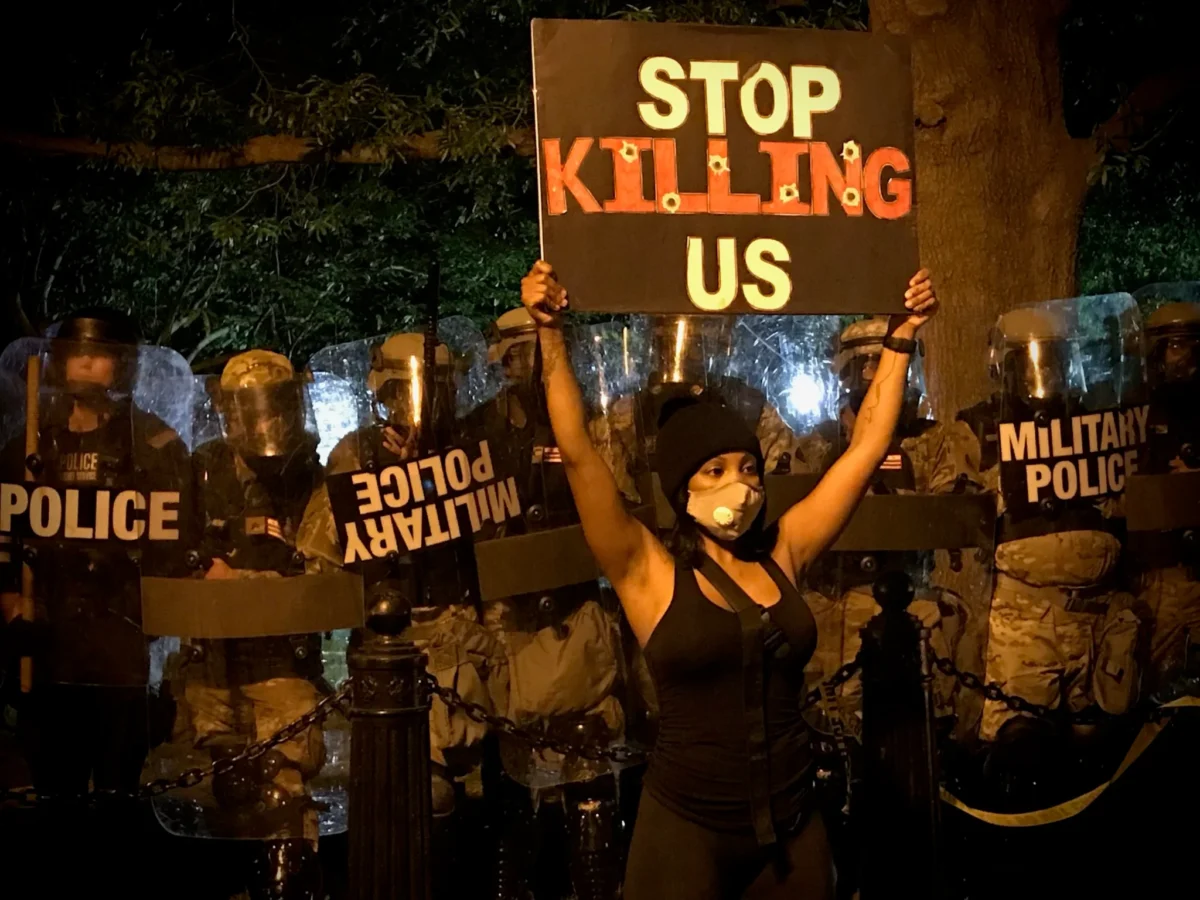Existing alongside and within punitive structures appears to have left an indelible mark on (among other things) our moral thought. As antagonistic as they may be, both the status quo of carcerality and our desire to change it are products of this world. If we believe in abolition not as the telos of a utopian thought exercise, but as an attainable point we might reach in our lifetimes, what is to be done with these indelible marks within us: gestures towards baseness, cruelty, and revenge? Assuming that the improvement of a world without cops and prisons cannot purify us of these capacities, what will become of them in abolitionist futures?
At the end of Abolitionist Alternatives, Angela Davis gives an example of a successful reconciliation achieved within the system: the story of a family who came to forgive their daughter’s killers, had them pardoned, and eventually met and declared love for them.[10] In an unjust, carceral world, this reconciliation is surely a good thing. But this single example doesn’t speak for itself as Davis might intend it to. Philosophically, to overextend this example as some grand telos of abolitionism: evidence of a final terminus that can be achieved as part of every healing process, a glimpse of the improved moral climate inherent to abolition, feels like an oversimplification.
Whether initiated by revolution or reform, a system founded upon forgiveness instead of punishment is not really a morally radical alternative to the status quo, but is merely a reconfiguration of it, something still rooted in the old system’s foundational logic of Christian morality. As the father in Davis’s example says, “we tried to explain that sometimes it pays to shut up and listen to what other people have to say, to ask: ‘Why do these terrible things happen?’ instead of simply reacting.” [11] This approach makes sense in his case of forgiveness following a wanton killing. But might there be a place for reactiveness?
On the second verse of Red Dust, billy woods clearly chooses violence, professing:
you on the list
planet ain’t big enough, we can’t coexist
From the beginning, reconciliation is not an option—one of us has to go. His preoccupation with revenge is deep, taking on libidinal forms of prayer, sex, writing, memory:
say my prayers e’ry night, you be in the mix
I can’t wait, dream about it like sex
etch you off the writ
help you remember what you’re trying to forget
woods further fleshes out what he hopes to achieve from this act of violence, which is less about the sadism of torture, and more about corresponding with the other in a way that can only happen alongside their destruction. Maybe woods’ showing the sea of hate inside himself through this violence functions as catharsis, a mimetic release of trauma from the violence he’s experienced (from “the worst people” and from the police) ending in the obliteration of the unknown subject:
I want us to be alone in your home
I want to suck the marrow out your bones
I want to show you what I learned from the worst people I ever known
I want to follow you like the Jakes
I want to swallow you
show the hate inside, it’s a lake
so cold, so deep
I see you, you never saw me
transferred to the sea
so close I can see a nick from shavin’
your neck so exposed, your throat would open like a hose
eyes wide open I would watch you go
woods expresses his priority to killing this person, even if he goes to hell for it, even if it’s the last thing he does:
seein’ you in hell all I think about when they say woods
that’s all she wrote
I know the list long
I put you at the fuckin’ top though!
woods’ verse is delivered with a resonating intensity, poetically stated but not overdone. Simply, it makes me wonder: free from our carceral reality which is founded upon logics of revenge—is no revenge justified? What would it look like to seriously incorporate such a sober commitment to revenge into a politics of abolition? If obsession with revenge is an intoxication, how is an obsession with forgiveness any less so? Maybe woods’ act invokes Benjamin’s divine violence, transcending moral assessment in its destructive fury. Maybe not. Either way, the current legal system’s regime of stamping all cases of violence into reactive tragedies through manufactured abstractions—(carceral) guilt, (carceral) retribution, (carceral) justice, all while continuing its own practices of violence, is entirely toxic to our moral senses. Under a system that leaves people to die in cages, forgiveness between citizens becomes something profane. Abolition is the only option forward, not only because it is the only path toward forgiveness, but because it legitimizes the potential for revenge and forgiveness alike, making it the only path leading out of the rut of routine state violences.
Pat LeGates
[10] Angela Y. Davis, Are Prisons Obsolete? (Seven Stories Press, 2011), 114-5.
[11] Davis, 115.
